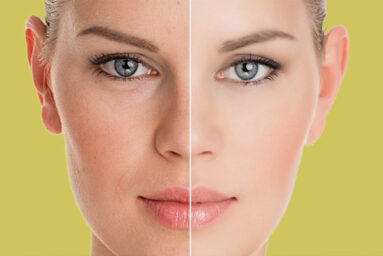
Psoriasis Treatment

Psoriasis Treatment refers to medical and technological methods used to manage psoriasis — a chronic inflammatory skin disease. Psoriasis occurs when the immune system becomes overactive, causing skin cells to renew up to ten times faster than normal. As a result, red, scaly, and flaky plaques form on the skin surface. Although psoriasis cannot be completely cured, modern dermatological approaches can significantly reduce symptoms and help maintain long-term control. Treatments include topical creams and medications, as well as advanced methods such as Laser Genesis, Phototherapy, and biological therapies. This article explains how psoriasis treatment is applied and the innovative approaches used in modern dermatology.
What is Psoriasis?
Psoriasis is a chronic, immune-mediated inflammatory skin condition in which skin cells regenerate 5–10 times faster than normal. It can be triggered by genetic predisposition, stress, infections, certain medications, or hormonal changes. The condition presents as red, raised plaques covered with silvery scales, commonly appearing on the elbows, knees, scalp, back, and nails. Psoriasis is not contagious, but it requires long-term management. Early diagnosis and appropriate dermatological care can slow disease progression and greatly improve quality of life.
How is Psoriasis Treated?
Treatment is tailored individually based on the type, severity, and extent of psoriasis, as well as the patient’s overall health. Mild cases can often be managed with topical treatments such as creams, lotions, or corticosteroid ointments. For moderate to severe cases, phototherapy, systemic medications, or laser treatments are used. Laser Genesis improves microcirculation and reduces inflammation in affected skin areas, supporting healthy skin regeneration. Similarly, UVB phototherapy helps normalize excessive skin cell production. When performed regularly, these treatments can provide long-term remission periods without symptoms.
Laser Genesis for Psoriasis
Laser Genesis is one of the most innovative non-invasive technologies used in psoriasis management. It works by gently heating the deeper layers of the skin, enhancing microcirculation, reducing inflammation, and stimulating collagen production. The treatment is painless, requires no anesthesia, and can be performed without affecting daily life. After 4–6 sessions, visible improvement can be seen, with thinner plaques and more even skin tone.
Phototherapy (Light Therapy)
Phototherapy is a well-established and effective psoriasis treatment method. The skin is exposed to controlled doses of ultraviolet B (UVB) light, which slows down the excessive production of skin cells and reduces plaque formation. Modern narrow-band UVB devices provide both safety and efficacy. Typically performed several times per week, significant improvement is observed after 8–12 weeks. Phototherapy can be used alone or in combination with medication.
Medications Used in Psoriasis
Medication therapy is determined by disease severity. Topical treatments (creams or ointments) are used for mild psoriasis, while systemic treatments are recommended for more extensive cases. Drugs such as methotrexate, cyclosporine, retinoids, and biological agents help regulate the immune system and control inflammation. These medications must be prescribed and monitored by a dermatologist to ensure safety and effectiveness.
Nutrition and Lifestyle Modifications
In addition to medical treatment, lifestyle changes play a key role in managing psoriasis. A balanced, antioxidant-rich diet, regular exercise, and effective stress management help maintain immune balance. Reducing alcohol and tobacco use can significantly decrease flare-up frequency. Getting adequate sleep and moderate sunlight exposure also support skin health.
Post-Treatment Care
After laser or phototherapy sessions, mild redness or warmth may occur but typically resolves quickly. The skin should be kept moisturized and protected from the sun. Using dermatologist-recommended creams and avoiding irritating soaps, perfumes, or chemicals will improve treatment outcomes.
Combination Treatments
In modern dermatology, combining multiple therapies often enhances results. Laser or phototherapy can be used alongside topical or systemic medications for faster symptom relief and longer remission periods. Technologies like Laser Genesis provide an effective, medication-free support option for localized plaques.
| Feature | Description |
|---|---|
| Treatment Duration | 20–40 minutes (laser/phototherapy) |
| Number of Sessions | 4–10 sessions |
| Improvement Period | Varies by patient; visible improvement within weeks |
| Technologies Used | Laser Genesis, Phototherapy, Biological treatments |
| Treatment Areas | Scalp, elbows, knees, back, chest |
Psoriasis Treatment Prices
The cost of psoriasis treatment varies depending on the method used (laser, phototherapy, or medication), number of sessions, and treatment area. Since every patient’s condition is unique, fixed pricing is not possible. After a detailed skin analysis, our clinic provides personalized treatment plans and pricing information. Please contact us for details.
Psoriasis treatment requires consistent follow-up and individualized planning. With today’s dermatological advancements — including laser, phototherapy, and biological therapies — effective, safe, and aesthetically satisfying results can be achieved. Under professional supervision, these modern methods significantly improve the quality of life for psoriasis patients. ✨
Frequently Asked Questions
Question:
Can psoriasis be completely cured?
No. Psoriasis is a chronic condition that cannot be completely eliminated, but with proper treatment, long-term control and symptom-free periods are achievable. ✅
Question:
Who can benefit from laser treatment for psoriasis?
Laser Genesis is ideal for localized, mild-to-moderate psoriasis plaques. However, pregnancy or serious systemic illnesses require physician evaluation before treatment. 💡
Question:
Is psoriasis contagious?
No. Psoriasis is an immune-mediated condition and is not contagious. It cannot be transmitted through contact. 📌
Question:
How long does phototherapy take to show results?
Visible improvement is typically seen after 4–6 weeks, with smoother plaques and lighter pigmentation. Consistent sessions ensure lasting results. 🌿








